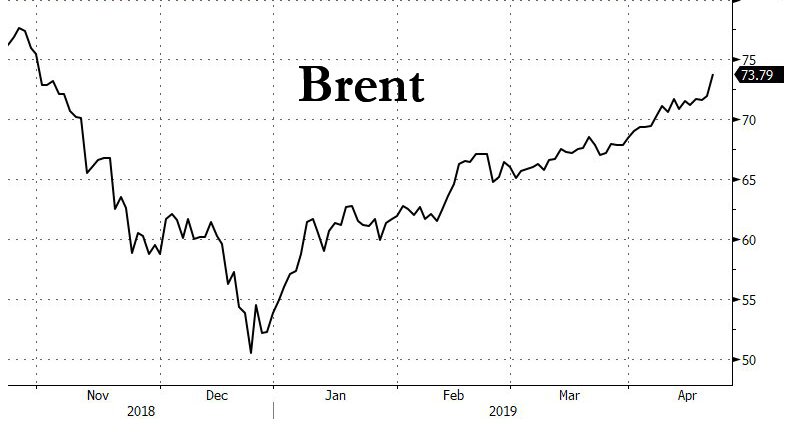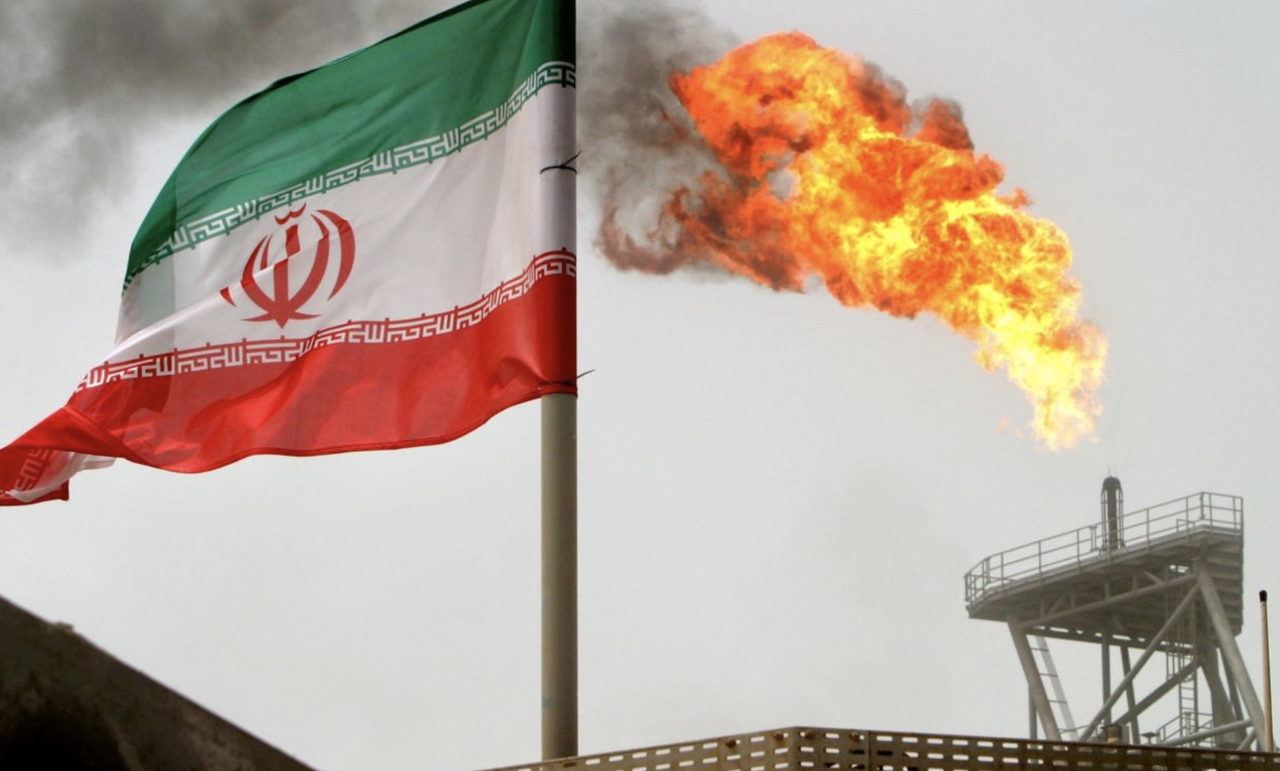Oil Surges As Washington Prepares To End Iranian Crude-Export Waivers
Expectations that the Trump administration would extend export waivers on Iranian oil have been dashed after the Washington Post reported late Sunday that Secretary of State Mike Pompeo was preparing to announce on Monday that the US would move to end the exemptions early next month, when the initial 180-day waivers offered to eight countries are set to expire. The news sent oil prices surging in early Easter Monday trade.
Unsurprisingly, crude futures for May delivery climbed as much as 74 cents to $64.74/bbl in New York on the news the US would end the practice of allowing certain countries to import Iranian oil without facing sanctions. Meanwhile, front-month Brent futures topped $74 a barrel, their highest level since Nov. 1.

On Monday morning, Pompeo plans to announce that as of May 2, the State Department will no longer grant sanctions waivers to any country importing Iranian crude or condensate, WaPo said. WSJ, Reuters, and others later confirmed the WaPo report.
The decision to end the waivers will impact recipients in different ways: Three of the eight countries that were granted the 180-day waivers back in November - Greece, Italy, and Taiwan - have already reduced their Iranian oil imports to zero.

The other countries that will need to cut off imports or face serious repercussions include China, India, Turkey, Japan, and South Korea. As of now, China and India are the largest importers of Iranian oil, and if they don't swiftly act to cut down on their imports, bilateral relations with the US could suffer.
"China has consistently opposed the US implementation of unilateral sanctions and reaching beyond its jurisdiction," Foreign Ministry spokesman Geng Shuang said Monday at his regular briefing in Beijing.
South Korea and Japan aren't as dependent on Iranian oil and have already been working to pare back their imports. Meanwhile, a Turkish official has said Ankara expects another waiver. But it's looking like it won't get one.
America's decision to reimpose sanctions have had the desired effect: Iranian oil exports were measured at about 1 million barrels a day in March, down from 2.5 million barrels per day in April of last year, the month before Trump revealed that the US would withdraw from the nuclear deal. The sanctions have cut the supply of oil to Syrian President Bashar al-Assad, and also contributed to Hezbollah's recent funding shortages, experts said
However, threats against adversaries and allies are not without risk: European allies have been working with Tehran to circumvent sanctions as part of their efforts to save the deal, something that has led to an alternative payments network to US-dominated SWIFT that some fear could accelerate de-dollarization in the oil trade.
At least for now, the US still has enough clout in international energy markets to force compliance. In response to the reports, Saudi Arabia said they would be 'open' to ramping up production to compensate for the shortfall - in accordance with President Trump's demands that OPEC do more to curb rising oil prices.
And although US crude is too light to serve as a suitable substitute for Iranian oil, the fact that the US has now established itself as the world's largest crude oil producer is something to keep in mind.



